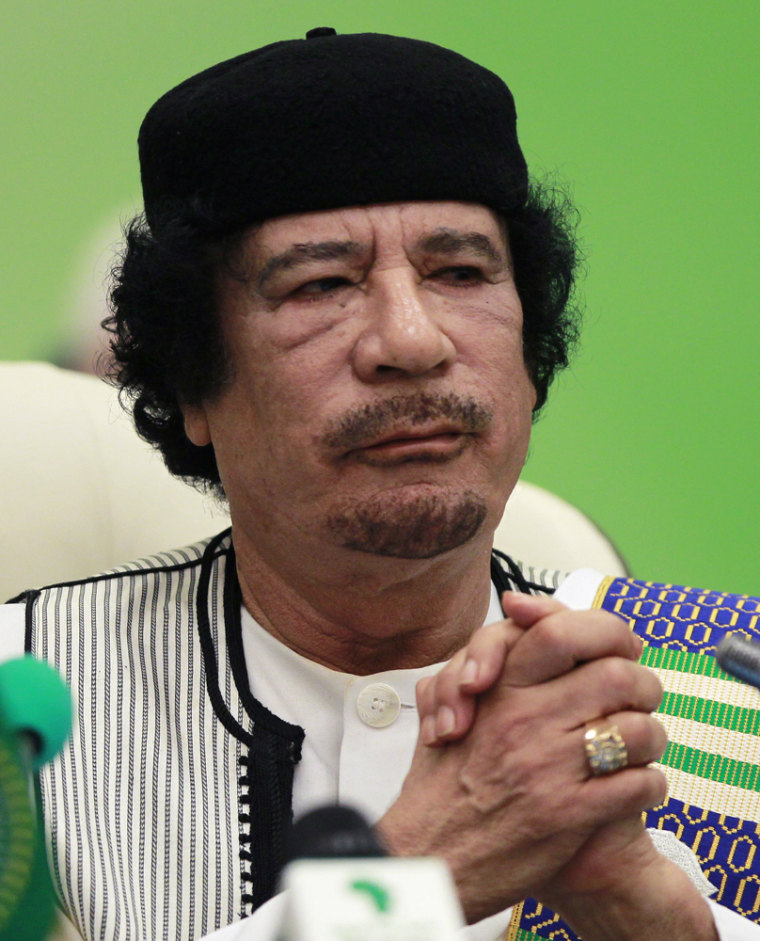In the early morning of Nov. 25, 2009, a specialized Russian transport plane left the Libyan capital, Tripoli, on a secret mission without its intended cargo.
A small stockpile of spent nuclear fuel destined for disposal in Russia remained behind in a lightly guarded research center, apparently because of a fit of pique by Libya’s mercurial leader, Col. Muammar el-Qaddafi. In a frantic cable back to Washington, American officials in Tripoli warned of dire consequences unless the carefully brokered deal to remove the 5.2 kilograms (11.4 pounds) of highly enriched uranium stored in seven five-ton casks was quickly resurrected.
If the enriched uranium "is not removed from the casks within three months, its rising temperature could cause the casks to crack and to release radioactive nuclear material," the American Embassy in Tripoli reported, according to cables made public by WikiLeaks. "Security concerns alone dictate that we must employ all of our resources to find a timely solution to this problem, and to keep any mention of it out of the press."
The seeds of what appeared to be the demise of the secret deal were planted weeks earlier in New York, when Colonel Qaddafi expressed unhappiness that he was not permitted to set up his tent in Manhattan or to visit ground zero during a United Nations session.
But the scope of the colonel’s anger was not fully realized until Nov. 20, 2009, when the Libyan government unexpectedly ordered a team of visiting American and Russian scientists to halt preparations to ship the spent nuclear fuel to Russia, despite separate agreements Libya had reached with the United States and Russia.
The Libyans, in fact, had already agreed to pay $30,000 to have the Russians remove the material and bury it in a secure location.
Colonel Qaddafi’s son Saif al-Islam el-Qaddafi told the American ambassador on Nov. 27 that Libya balked at its promise to ship its final enriched uranium stockpile because it was "fed up" with the slow pace of improved relations with Washington. Libya had agreed in 2003 to dismantle its unconventional weapons program in exchange for greater military, security and economic cooperation.
"The Libyan Government has chosen a very dangerous issue on which to express its apparent pique about perceived problems in the bilateral relationship," the American ambassador, Gene A. Cretz, said in a cable to Washington.
Diplomats warned that if the enriched uranium was not sent to Russia soon, Russian scientists would be required to develop entirely new and risky technology to remove the spent fuel from the casks in Libya itself.
In the next few weeks, the cables revealed, American and Russian officials prevailed upon the Libyans to disengage the research center’s loading crane to prevent an intruder from moving the casks. Extra security guards were sent to the site. (Before that, diplomats noted that they had seen only one guard with a gun and they raised doubts whether that was even loaded.)
American and Russian officials successfully smoothed Colonel Qaddafi’s ruffled feathers.
By late December, the Russian aircraft was back on the tarmac in Tripoli. Visiting United States Energy Department officials reported that the loading of the casks overnight on Dec. 20-21 was carried out without a hitch. Libyan officials at the Tajoura Nuclear Center offered no insights into the reasons behind the government’s about-face.
At 5:15 a.m. on Dec. 21, the Russian-chartered plane took off. Energy Department officials confirmed several hours later that the flight — and its secret cargo — had finally arrived in Russia.
This article, "," first appeared in The New York Times.
